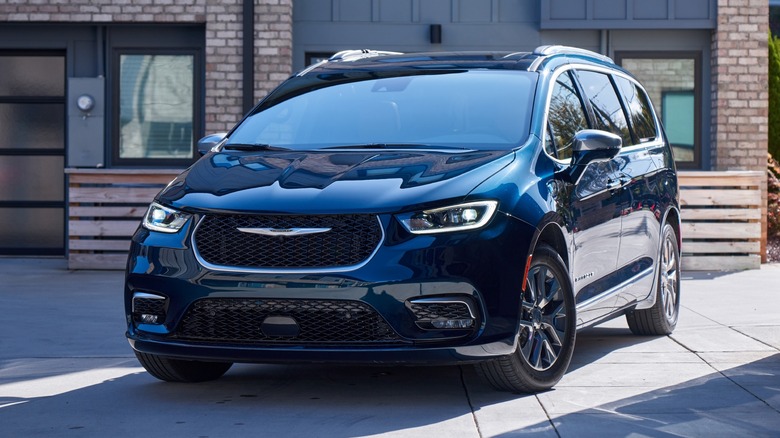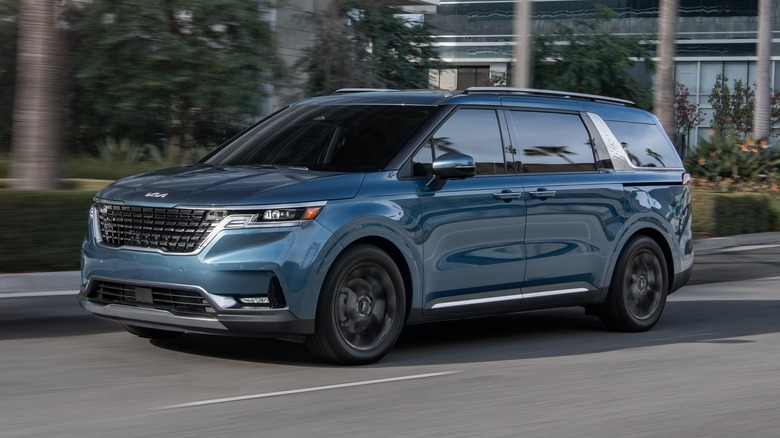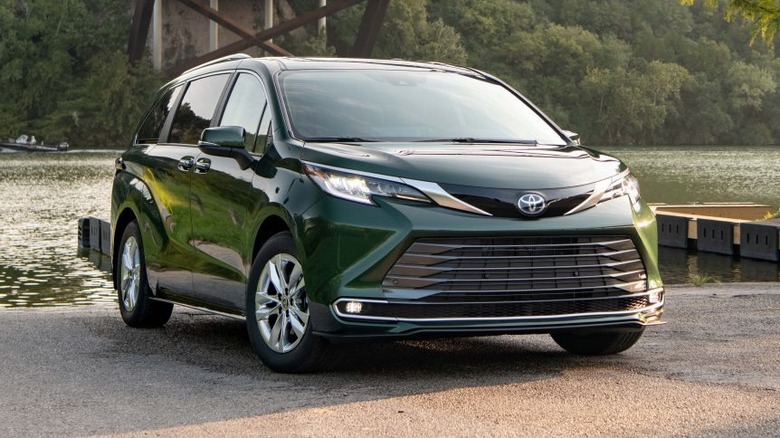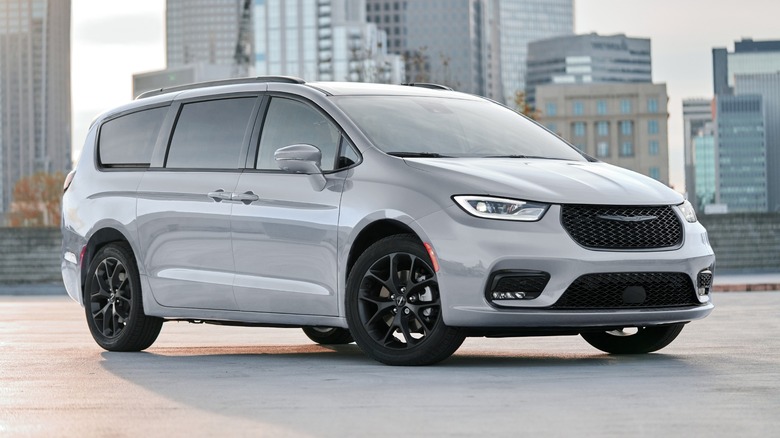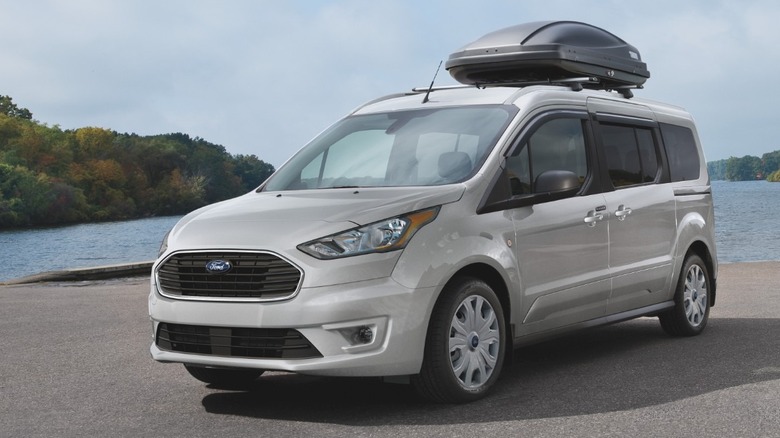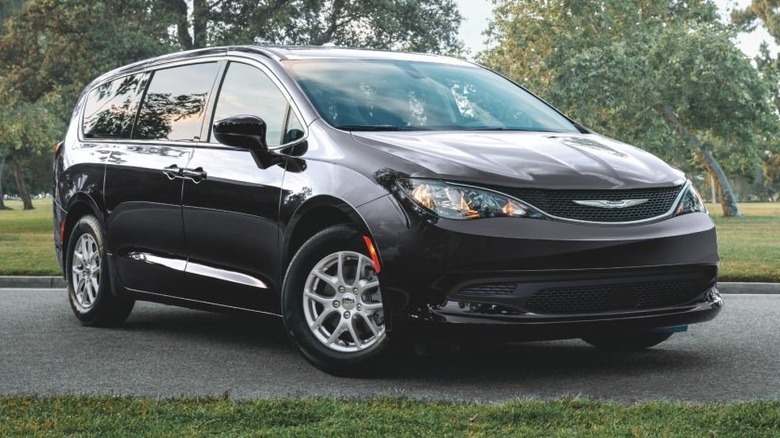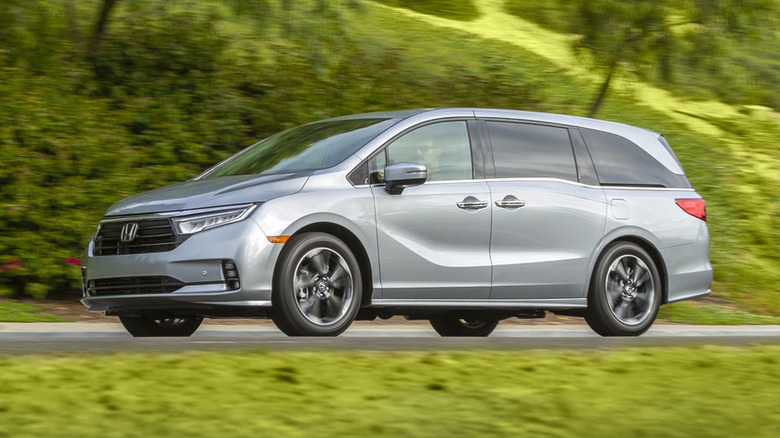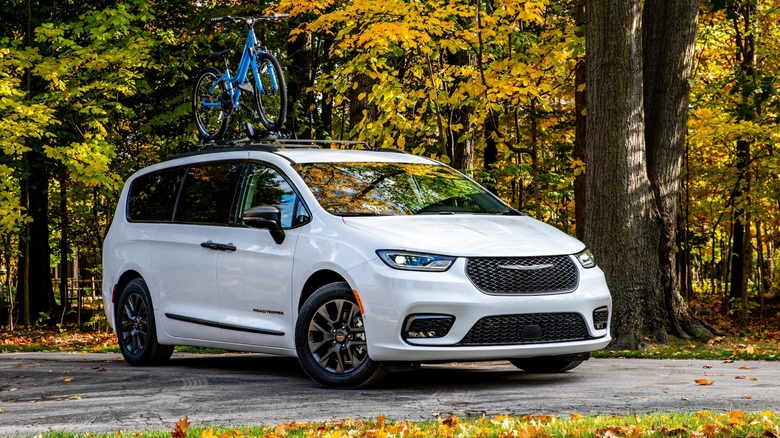7 New Vans That Are Surprisingly Fuel Efficient
Car buyers' seemingly insatiable demand for SUVs has seen other segments rapidly lose market share, with minivans and compact vans among the worst affected. Launching a minivan was once a safe bet for a manufacturer, but with a shrinking pool of buyers, many have now phased out their minivan offerings and instead launched a wider range of SUVs. The market might be smaller than it once was, but vans that have stuck around are, as a result, more competitive than ever.
Not only are they competitive in regard to interior space and tech, but they're also surprisingly competitive when it comes to efficiency. Vans often offer superior mpg compared to SUVs of equivalent size, with some now featuring hybrid powertrains to further boost their fuel-sipping credentials. These seven minivans and compact passenger vans all offer better fuel efficiency figures than many buyers might assume without sacrificing the practicality or capability that made the segment so appealing in the first place.
Kia Carnival – 22 mpg
While most minivans tend to feature very similar (and largely non-descript) looks, Kia decided to inject some more distinctive styling into the current generation Carnival. It takes inspiration from the brand's range of SUVs, and especially from the rear, could easily be mistaken for one. That's no accident — with SUVs such an in-demand segment, it made sense for the Carnival to look as close to its best-selling stablemates as possible. SlashGear reviewed the current generation Carnival in 2023 and found it to be a compelling alternative to a three-row SUV. Not only did it feature the cavernous interior space best associated with the minivan segment, but it also felt surprisingly upscale in top-spec trim.
Our testing also returned an average of 26 mpg on a mixed route, significantly above the 22 mpg combined rating given by the EPA. The 2024 Carnival will be the last of its kind, with the upcoming 2025 model year debuting a styling overhaul that puts the model even closer in appearance to its SUV siblings. As of this writing, there's no EPA data available for the 2025 Carnival.
Toyota Sienna Hybrid – 36 mpg
The current generation Toyota Sienna Hybrid was first unveiled for the 2021 model year and was sharper looking, better equipped, and more efficient than its predecessor. According to the EPA, the 2024 Sienna Hybrid achieves a combined 36 mpg, making it the most efficient non-PHEV minivan on the market. It's also one of the most tech-heavy, at least in its top-spec trims. Optional extras include a bird's eye view camera and a built-in refrigerator, alongside an in-car PA system and a digital rear-view mirror.
Safety tech is also plentiful in the Sienna Hybrid, with all trims receiving Toyota's Safety Sense 2.0 package as standard. It all adds up to a car that's very competitive with many best-selling family-hauling SUVs, plus it'll go further than many of them on a tank. The EPA estimates that a full tank of gas will provide 648 miles of range in mixed driving conditions.
Chrysler Pacifica – 22 mpg
The latest entrant in a long line of Chrysler minivans is the Pacifica, which SlashGear reviewed in 2021. At the time, we praised its spaciousness and family-friendly infotainment setup, and in the years since, Chrysler has made no major changes to the model. That includes its powertrain, which remains the same 3.6L V6 unit churning out 287 horsepower. Its efficiency has also remained unchanged, with the EPA rating it for 22 mpg combined for the 2024 model year.
The Pacifica is one of only two models offered in the current Chrysler range — three if you count the Pacifica Hybrid as a separate model — and each has been on sale mostly unchanged for several years now. The current lineup is in its sunset years, with the automaker committed to transitioning to an all-electric range by 2028. Despite the Pacifica's advancing age compared to many of its rivals, however, it still holds up to its rivals when it comes to fuel consumption, space, and pricing — in short, all the key elements minivan buyers will be looking for.
Ford Transit Connect – 25 mpg
Ford officially axed its Transit Connect after the 2023 model year, but as of this writing, a limited amount of inventory still remains at dealerships. The Transit Connect was offered in both cargo and passenger form but struggled to catch on throughout its time on sale. The compact van market, in general, was never particularly lucrative in North America, although the Transit Connect saw more success in other markets, such as Europe, where it remains on sale.
Don't be dissuaded by its lackluster sales, however — the small van is a very capable one, with room to carry up to seven passengers. It's also more economical than many three-row minivans and SUVs, with an EPA estimated rating of 25 mpg combined. Its small fuel tank means that, despite its impressive mpg, the van can't achieve as many miles as other vans between refueling stops. The EPA quotes 395 miles on a full tank, significantly less than other seven-seaters like the Toyota Sienna Hybrid.
Chrysler Voyager – 22 mpg
The Chrysler Voyager was discontinued for individual customers after the 2021 model year, but it can still technically be bought new in 2024. It's only available through Stellantis' fleet and business division in a configuration that will be very familiar to owners of the older consumer model. The 2024 Voyager features a 3.6L V6 engine churning out a respectable 287 horsepower — the same engine also on offer in the non-hybrid Pacifica — and a nine-speed automatic transmission.
It also offers the same surprisingly competitive efficiency figures as the Pacifica despite its aging powertrain. The EPA says drivers should expect 22 mpg combined or 28 mpg on the highway. Since it's now only available in fleet form, extras for the 2024 model include things like extra key fobs and various tracking and travel packages. Chrysler allows small businesses to register for its fleet program, but individual customers looking for a new Chrysler minivan will have to buy a Pacifica instead.
Honda Odyssey – 22 mpg
One of the longest-running nameplates in the minivan segment is the Honda Odyssey, with the latest generation debuting in 2018. It last received a major update for the 2021 model year and, since then, has remained on sale largely unchanged. While its efficiency can't match the figures that hybrid minivans can offer, it's still surprisingly efficient for a V6-powered van. The EPA rates the 2024 Odyssey for 22 mpg combined, with 28 mpg achievable on the highway.
The Odyssey's appeal is similar to other minivans: think interior space, family-oriented design, and high levels of dependability. However, it does manage to hide a few small surprises up its sleeve. Aside from the aforementioned mpg figures, the Odyssey is also faster than many buyers might expect, with a 0-60 mph time in the mid six second range. For context, that's around a second quicker than similarly practical rivals like the Kia Carnival.
Chrysler Pacifica Plug-In Hybrid – 30 mpg/82 mpge
While minivans have generally been overlooked in favor of SUVs when it comes to electrification, there is one great plug-in hybrid minivan on the market: the Chrysler Pacifica Plug-In Hybrid. It boasts up to 32 miles of all-electric range but is also surprisingly efficient in gas-only form. According to the EPA, the minivan achieves 30 mpg in gas-only form, and 82 mpge once its electric range has been taken into account.
Other than the added hybrid powertrain, there's not a lot of difference between the Pacifica Plug-In Hybrid and any other Pacifica. It retains the cavernous, supremely practical cabin of its purely gas powered counterpart, along with the same impressive level of standard safety tech. Like most other PHEVs, it does come at a steeper cost than a gas-only van, but the added fuel savings should help balance that upfront cost out over time.
